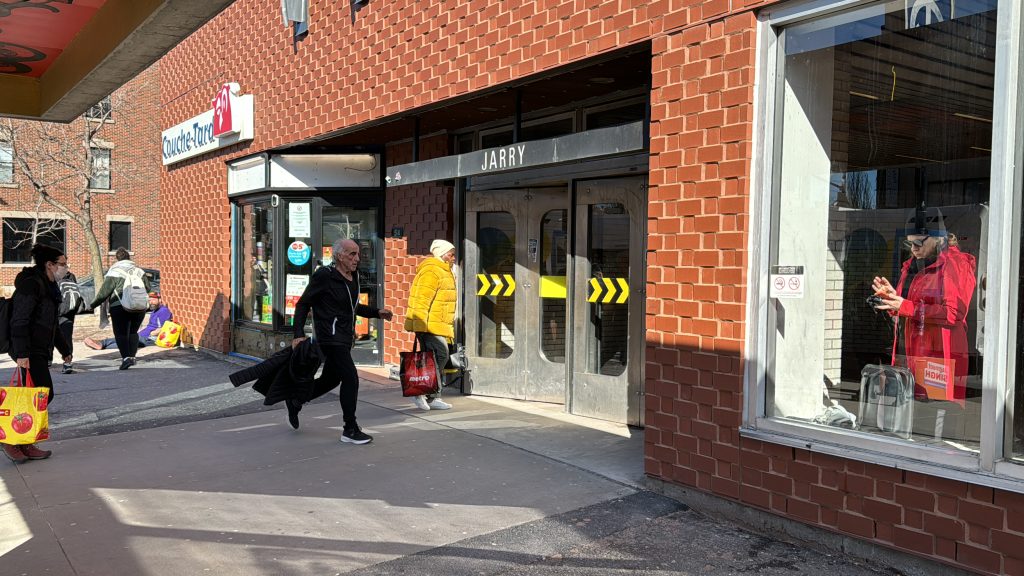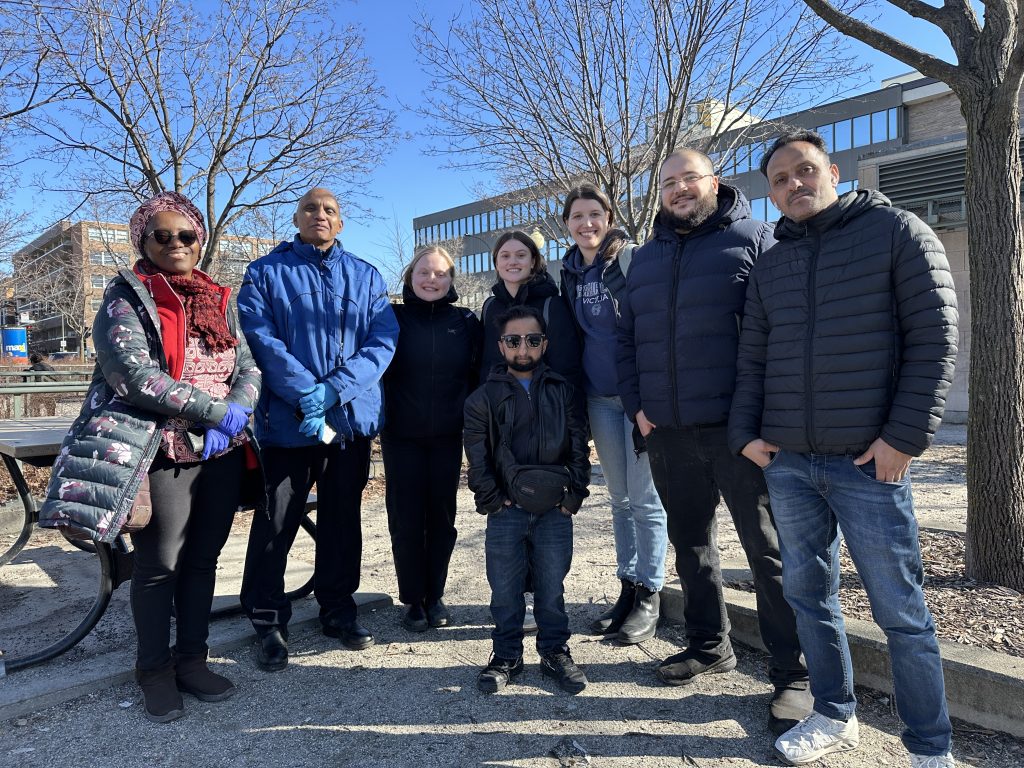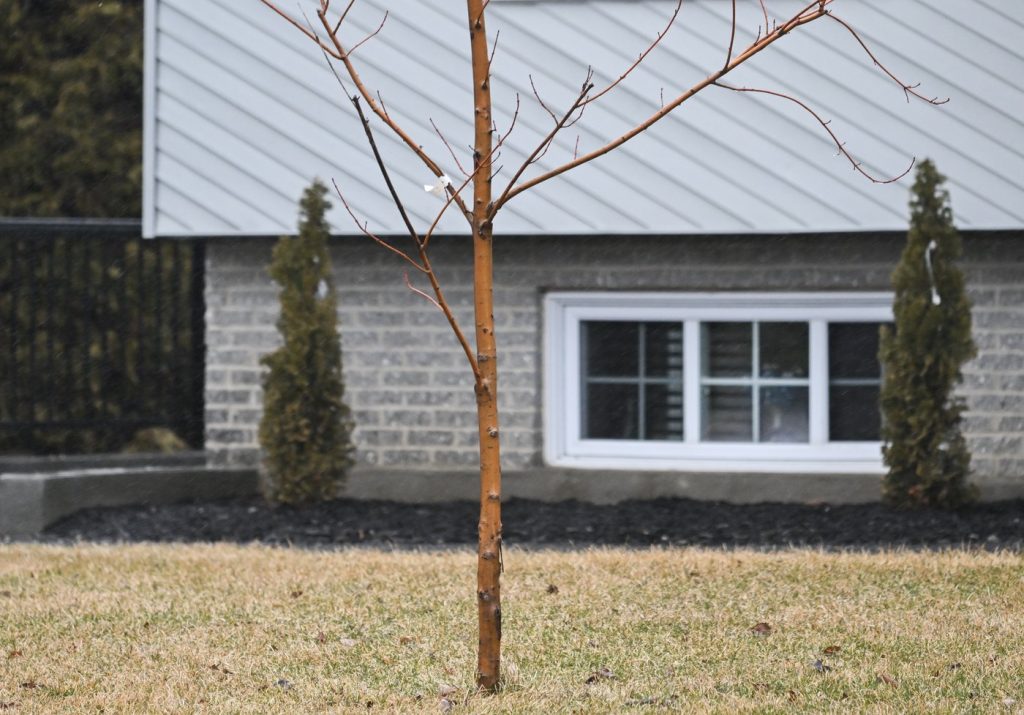Making Montreal’s metro safer, new approach by police and STM

Posted November 23, 2023 1:46 pm.
Last Updated November 24, 2023 4:02 pm.
The Montreal police (SPVM) and the city’s public transit agency the STM, have partnered to implement a new approach to make the metro safer.
This comes after an uptick in incidents since the pandemic related to homelessness, mental health, and drug use they say.
“We’re trying to manage our people in a really human way by offering them moments to discuss issues and trying to debrief with them any kind of difficult situation from an emotional standpoint,” Jocelyn Latulippe, STM Director of Fire Safety and Security said.
By addressing occurrences on a non-violent situational basis, increasing strategic officer presence across metro stations, and partnering with social services, the SPVM and STM aim to resolve problems at the what they call an ’emotional level,’ and leave Montreal metro users feeling more at ease.
“The environment is really different from where it was five years ago. So we need to adapt and it’s our way to adapt by offering different type of services to the different realities that we are right now,” says Latulippe.
As of December, 20 new special constables will be added, for a total of 200 constables. Safety ambassadors will also be in Metro stations, with eight starting in December and another eight at a later date.
One major change, as of January, will involve the Équipe Mobile de Médiation et d’Intervention Sociale (EMMIS) – team of intervention workers who patrol the city’s streets. Eight workers from EMMIS will be added.
Ramana Zanfongnon, Division Head of the Diversity and Social Inclusion Department for the city of Montreal saying, “EMMIS is the new team we are adding in the subway of Montréal […] to take care of the people, our vulnerable people. We take care of them. We ask what their needs are, and we make sure they are referred to any services that exist in Montréal.”
Latulippe noting in a full breakdown of the new pillars for intervention that “the first level of intervention is where special constable safety ambassadors or police officers will answer calls.
“The second line of intervention where you have a mixed team composed of police officers, special constable and social workers – that will address those cases in a specific way by for example making sure that those people will receive the appropriate treatments. They will refer for example those specific cases to the third line of intervention composed mostly of either social workers or medical professionals,” the STM Director says.
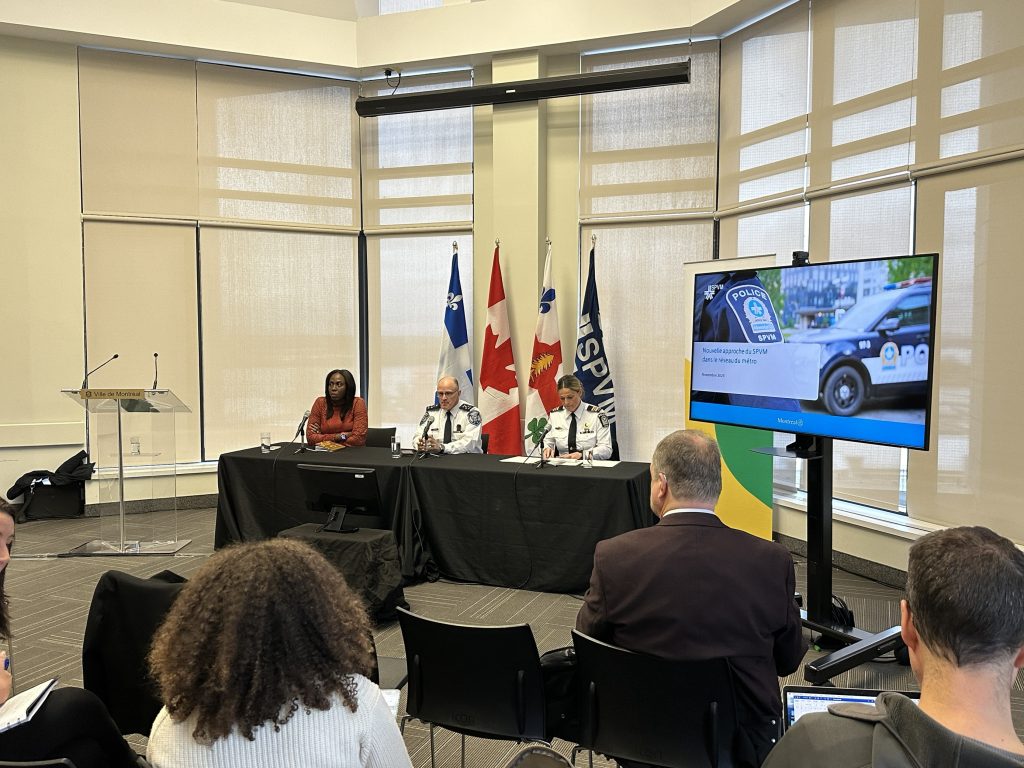
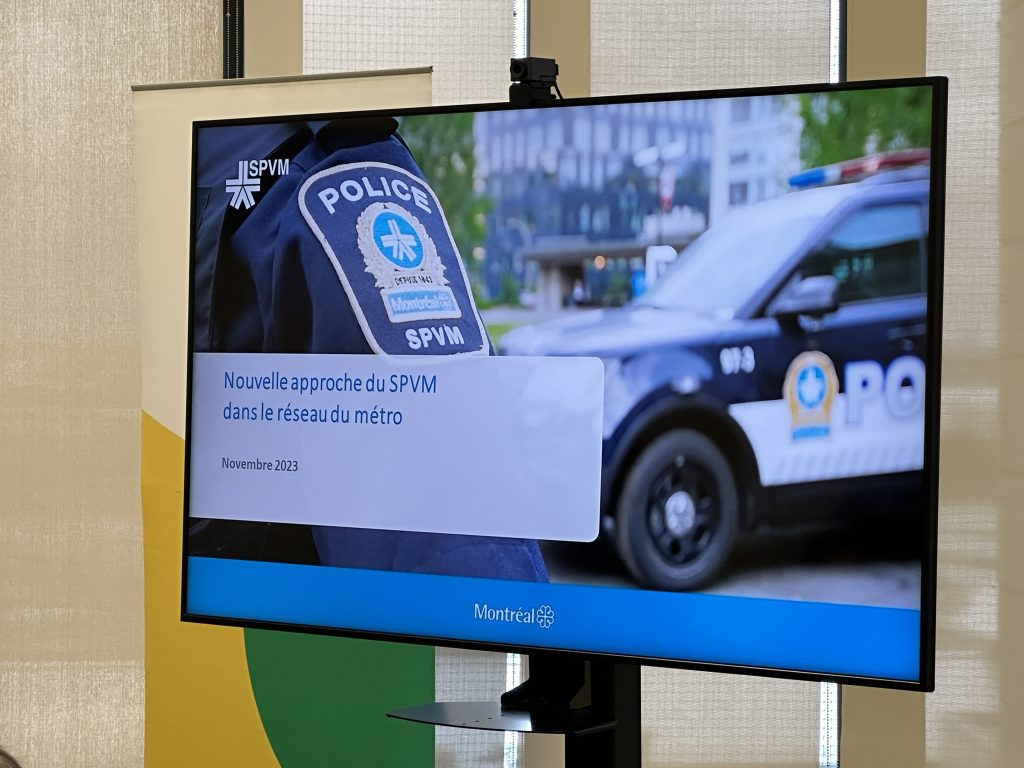
The city’s opposition reacted to the announcement, in a press release, Abdelhaq Sari, official opposition spokesperson on public safety and city councillor for the Marie-Clarac district, says that “while the Plante administration claimed just this week that there were no issues of security in the metro network, the STM and SPVM are now admitting that the feeling of safety among customers and staff is being affected. This admission is a good start, but we remain skeptical that the restructuring presented today will solve the problem. What worries us most is that police response times to emergency calls now routed to neighbourhood stations rather than directly to staff in the metro network have not been disclosed.”
“Like the special constables, the ÉMMIS squads and the new ambassadors unfortunately lack the powers and tools needed to intervene when situations get out of hand. Users will therefore remain without resources to deal with the most complex cases. Ensemble Montréal is also concerned about the breakdown in service that is likely to occur at night and on weekends, when [more people are out], since the squads finish at 10 p.m. and are not on duty on weekends.”
